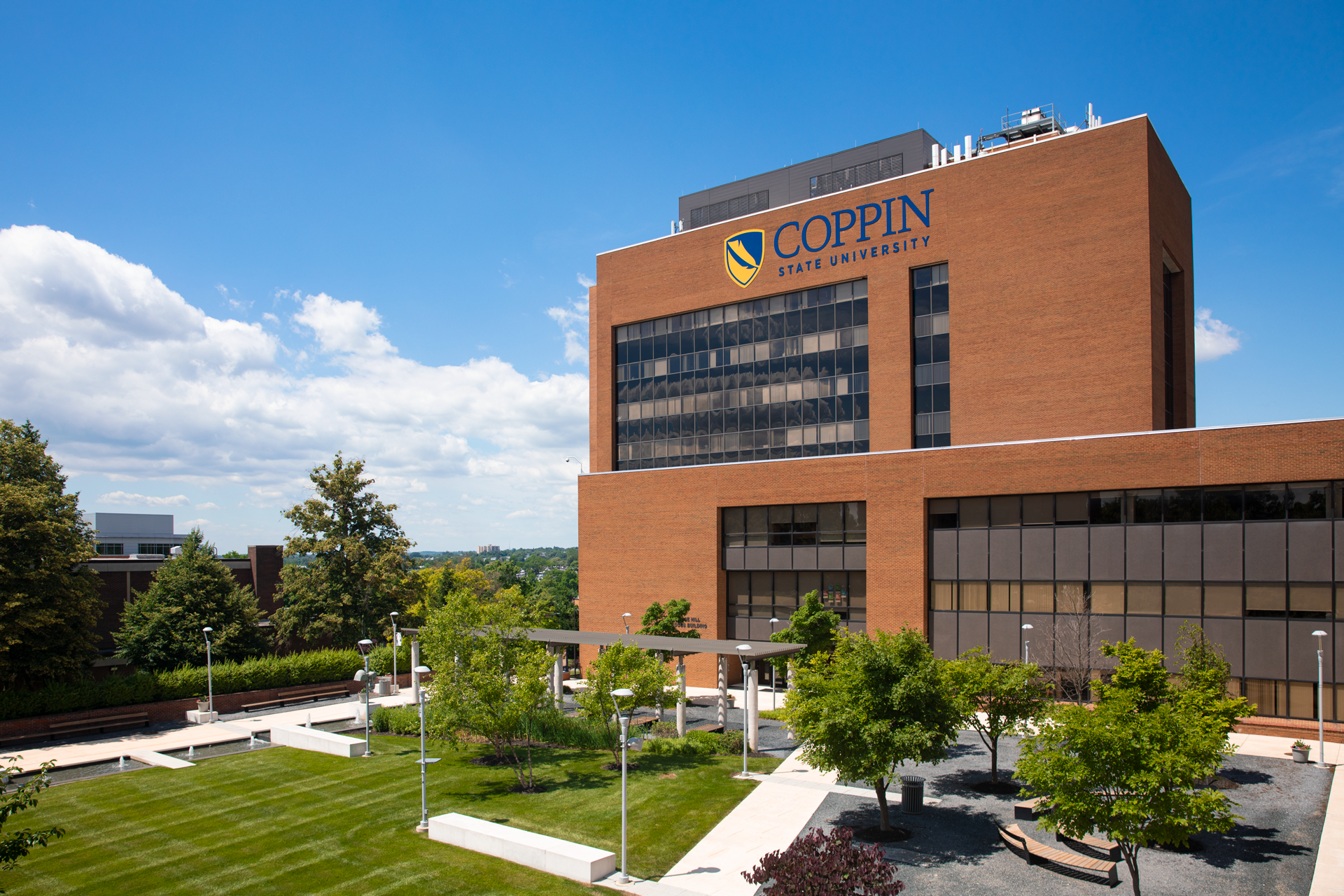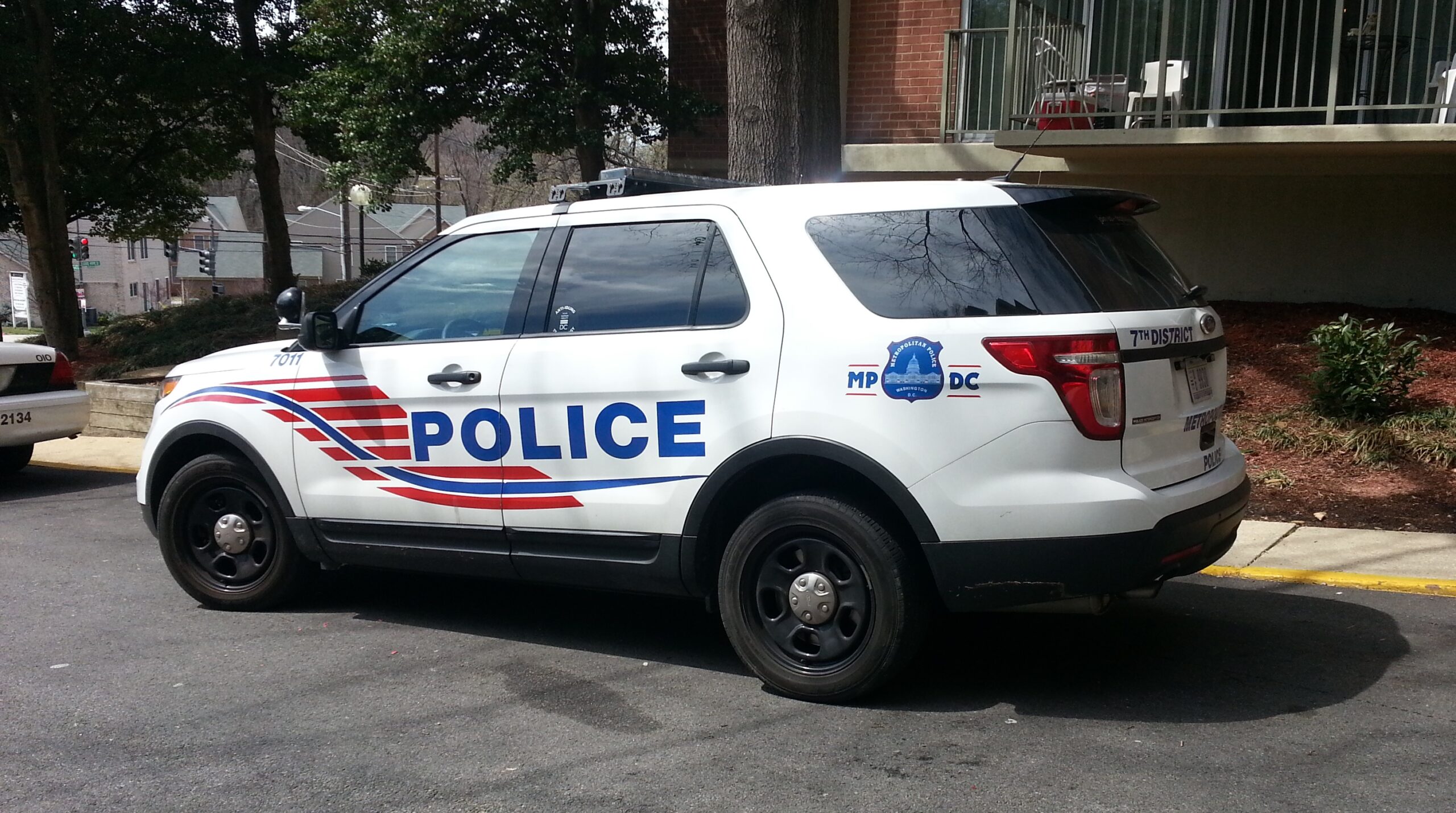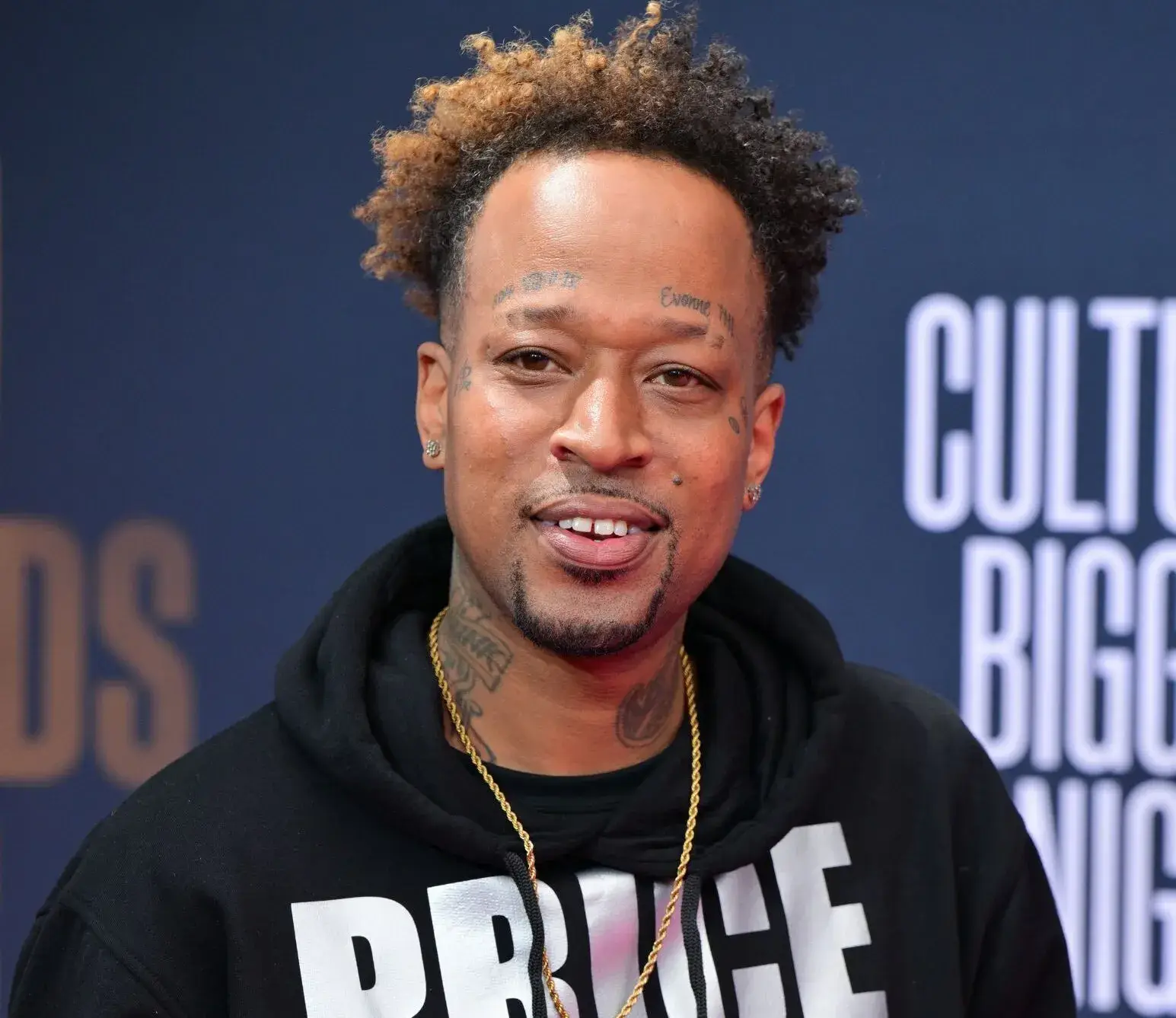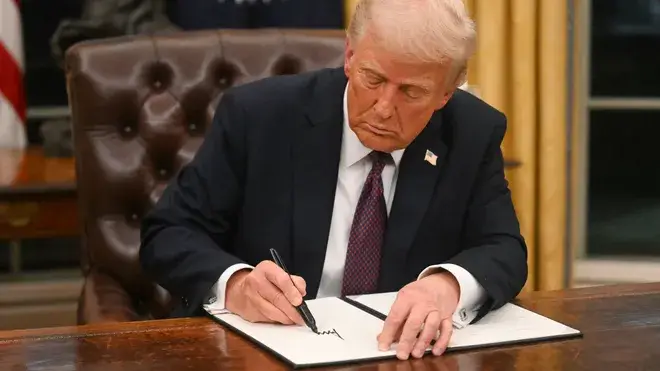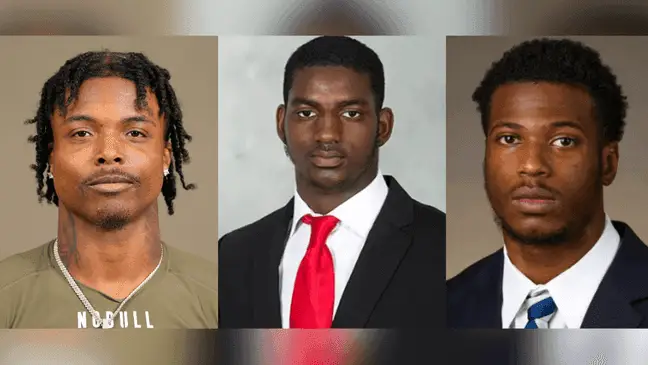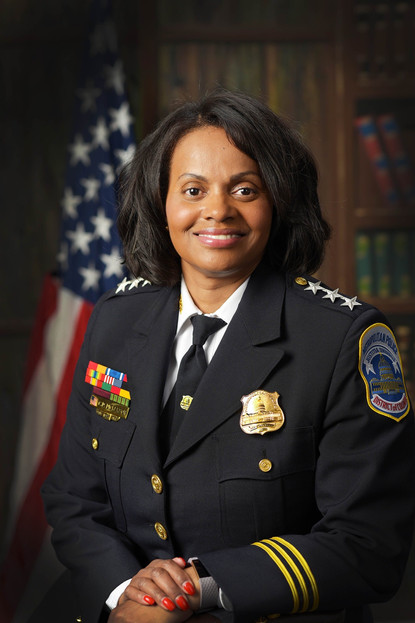
March Recognizes Assistant Chief Chanel Dickerson For Her Dedication To Service
For Women’s History Month, March honors Assistant Chief Chanel Dickerson of Patrol Services South (PSS) Bureau in the First, Sixth, and Seventh police districts of the Metropolitan Police Department (MPD). She has served 29 years in law enforcement. Joining the police cadet program in the 12th grade, she worked her way up the ranks and became the second-highest officer in the MPD and the only female at the executive level.
“What you see is what you get and I’m always going to show up that way and I’m not going to pass it on to someone else, hoping they’re going to do the right thing,” Assistant Chief Dickerson said.
She lives a modest and purpose-driven life. This rank she holds is apart of her job, but it’s not who she is. She’s authentic and it’s her responsibility to oversee and effectively lead the 1100 sworn in civilian men and women in her bureau. To ensure they put in place a fair and equitable manner because she knows life can be hard and she understands the people on her team are her greatest assets.
“It is important for me to lead from the front. So, if I ask them to be compassionate and empathic when they’re doing their job, then I have to be compassionate and empathic too. Not only with the community, but with them as well,” she said.
Her other duties include being an assistant to the Chief of MPD. To counsel him on important matters from crime to community engagements. She steps up to fulfill other commitments when the Chief is unavailable. She’s also involved in some training, speaking engagements, and responds to all calls of service; crimes, traffic, or the needs of the community.
Throughout her years of service, Assistant Chief Dickerson has served in numerous supervisory roles. She has served as a detective sergeant, detective captain, lieutenant, and commander. Her job is to oversee investigation cases, policies, and procedures. She knows how an investigation should look and knows what to do to bring closure to the victims and their families.
“I make sure all the things that are supposed to be done on a case are done,” she said.
She understands there are real lives and real people behind their cases. With the number of cases her team receives, she doesn’t want anyone to become jaded and see it as another case. Her job is to show MPD treats people like people and they show up every day knowing they are there to serve. They investigate cases from a victim-centered approach, so victims won’t feel they’re being victimized all over again.
Taking on a high-ranking position has its hardship, but Assistant Chief Dickerson prides herself on self-care.
“At the start of my day I have prayer, mediation, and exercise everyday because if I can’t take care of me, there’s no way I can show up and be the best version of me,” she said.
Her love for people is why she joined the police department. She strives to live her life in service. Not only to her team, but to her community. Having a heart of compassion is how she’s able to do her job and she stresses the importance of compassion to her team. Policing is not a job, but a passion. Policewomen and men show up at the most chaotic time in someone’s life when they are told to answer a call. The caller is looking for the police to solve their problem, but if an officer cannot provide compassion and assistance, it might not be the job for them.
The hardest cases for Assistant Chief Dickerson is the investigation of physical and sexual abuse of children. She calls them horrific and they remind her that there are awful people in the world, who do really bad things to children.
“I always say I’m the voice for the voiceless of children because I need to speak out on their behalf,” she said.
When looking deeper into why children are missing or getting arrested, she realized the cause is a deeper issue; it’s all linked to physical and sexual abuse. Her heart bleeds for them. This is why she shows up every day to work and hold the other men and women accountable to do their job. She wants to bring closure to the families of those cases and bring services to them.
Her plan, when she leaves law enforcement, is to continue working with abused children.
“Ask yourself, is this really the job for you. This can’t be the job for you if you have student loans, or no one else is hiring, or you can’t get into your field,” she said.
Working on these cases take time and energy. One of the many reasons why Assistant Chief Dickerson pushes for mental health support. She encourages officers to always ask themselves, what is their why. Why did you join the police force? or Why did you take on a certain role?
“You have to remind yourself of the why when things are tough and it will help you to push through. Giving up is the easy part. It’s digging deeper and pushing through is what’s needed,” she said.
However, she understands and respects those who say they can’t do the job. She doesn’t call them weak because it’s better to get out of law enforcement than to take on a case and not care about it.
She looks through each case and makes sure her team covers the things that need to be covered. If there is anything she thinks they need to do or haven’t done, she will make sure they get it done. She knows what it takes to do this job. No one can ever say she doesn’t show up or go above and beyond her normal duties every day. Although she feels she has to prove herself every day, she does her best to be an example for her team.
She recommends changing policy. She understands and acknowledges policing has historically been used to target minorities.
“We have to look at what we do and ask, is that right? Just because we can, should we. Making an arrest is the easy thing, but let’s take a deeper look as to why the person is committing the crime,” she said.
She encourages more women to join the force. For many reasons; women are more compassionate, talkative, and they look at things differently from a man’s point of view. They use less force, they don’t have egos to prove themselves to show they can do their job, no macho attitude, and they’re not looking to make an immediate arrest.
She told the story of a young man stealing food from a 7/11. When she got on the scene, she wasn’t thinking to arrest the boy, but thinking he’s probably stealing because he’s hungry. The young boy wasn’t arrested and Assistant Chief Dickerson paid 7/11 for the food. However, she took a deeper dive and found the reason why; it was a social services need and she ended up helping the family.
Most cops view arrest as a quota to meet, but sometimes there’s no need for that. She encourages people, who are looking to get into this field, to be authentic.
“Don’t allow other people to change you and you start going down their path instead of staying on your own,” she said
It encourages her, every day, to see how far the community has come. To demand for change in the police department and how it should look. She admits it was lonely being the only voice to call for a shift in the MPD. However, she’s happy to acknowledge a shift is happening. More women are beginning to join the law enforcement. According to Statista, in 2019; 67.1 percent of full-time civilian law enforcement employees in the United States were females.
She empowers her team to intervene if they see someone whose actions are not aligned with the mission and vision of the police department. If so, then that someone shouldn’t be there.
“When there are people on this job that are not doing things compassionately or fair, then they don’t need to be here and I’m okay with that,” she said
MPD is pushing for The Department of Behavioral Health to respond to the mental health crisis they face in the community. The community would benefit more from a professional health associate than the police, when called to handle a mental health case. MPD does have trained officers as crisis intervention officers and they’re pushing this training for all officers.
“What kind of outcome will probably happen with that, if we don’t send the professional that can accurately calm them down,” she said.
Outside of the stories we hear on the news about police brutality, there are some good officers making a difference in their community. Assistant Chief Dickerson recognizes amazing officers, who donate cars to grandmothers in need and speak to seniors, who graduate top of their class. She encourages the young generation, looking to join law enforcement, to be authentic because they’re the ones law enforcement will look like in the future.



